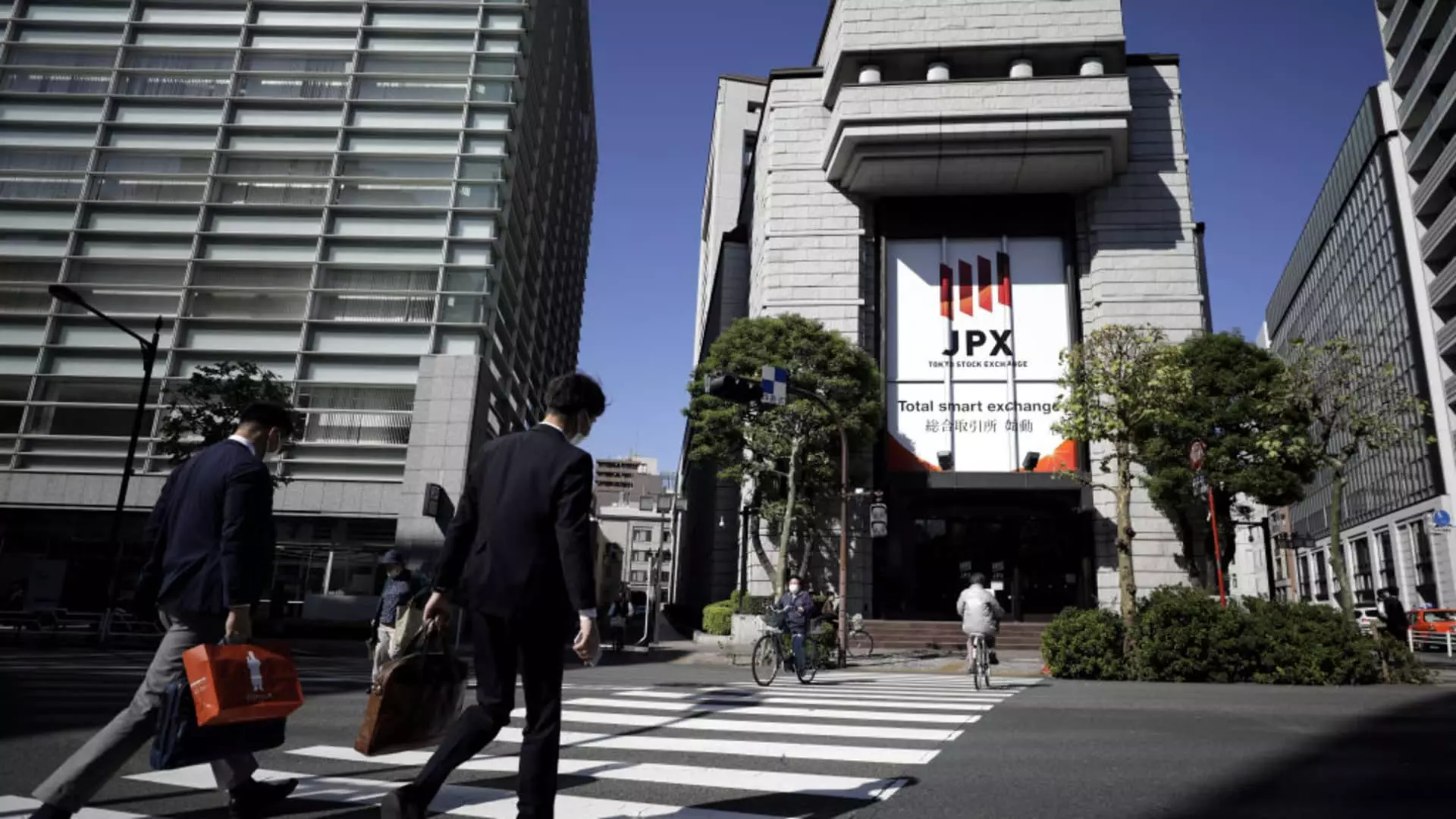On a day marked by hesitance in global markets, Japanese stocks emerged as a beacon of positivity, propelling Asian equities higher. The Nikkei 225 index surged by an impressive 2.57%, reflecting a growing confidence among investors in the Japanese economic landscape. This surge is notable given the backdrop of escalating tensions in the Middle East, which has left many investors wary of broader market stability. Additionally, the Topix index, which tracks a broader array of companies, exhibited a noteworthy increase of 2%, further underscoring the bullish sentiment in Japan’s financial markets.
The Yen’s Weakening and Economic Outlook
Amidst this stock market uptick, the Japanese yen faced significant depreciation, hitting a low of 146.54 against the U.S. dollar. This weakening currency can be attributed to various factors, including macroeconomic variables and Japan’s monetary policy. In a recent statement, Japan’s new Prime Minister, Shigeru Ishiba, indicated that current economic conditions do not warrant another rate hike. This comment was made following discussions with Bank of Japan Governor Kazuo Ueda, suggesting that the government is taking a cautious approach amidst global uncertainties.
As investors turn their attention to upcoming economic data across Asia, there are signs of emerging challenges. Australia’s Judo Bank Composite Purchasing Managers’ Index (PMI) for September registered a drop to 49.6, below the neutral mark of 50, indicating a contraction in economic activity from the previous month’s 51.7. Furthermore, the services PMI also reflected a decrease, moving to 50.5 from August’s 52.5. These figures signal potential headwinds for Australia’s economy as it faces its trade data report for August, which is anticipated to reveal a reduced surplus according to economists.
Chinese markets remained closed for a week-long holiday, showing a contrast to the active trading seen in other parts of Asia. Meanwhile, South Korea observed a National Foundation Day break, which contributed to reduced trading volume in the region. The S&P/ASX 200 index from Australia managed to climb by 0.25%, reflecting an underlying resilience amid the potential economic concerns. Hong Kong’s Hang Seng index futures experienced a slight dip, trading at around 22,438 after a strong performance that saw it close over 6% higher recently.
U.S. Market Performance as a Harbinger
Overnight, the performance of U.S. indices provided a mixed bag for Asian markets. The three major indices did see slight upticks, but the gains were minimal, with the S&P 500 edging up by just 0.01%, while the Dow Jones added roughly 39 points. Although the Nasdaq also experienced a minor increment of 0.08%, the lack of substantial upward movement indicates a cautious global sentiment. Investors are now more than ever focused on economic indicators that will dictate future market directions, especially as geopolitical tensions loom.
While Japan’s stock market rally offers hope and optimism, the varying economic indicators throughout Asia and the cautious stance of global markets remind investors of the complexities they must navigate in the current financial landscape.


Leave a Reply